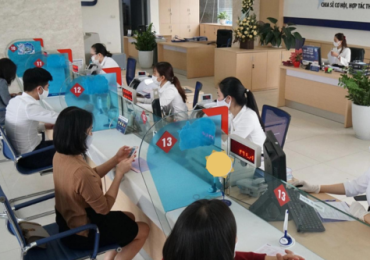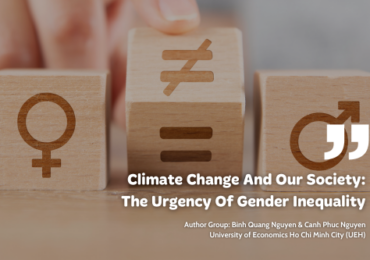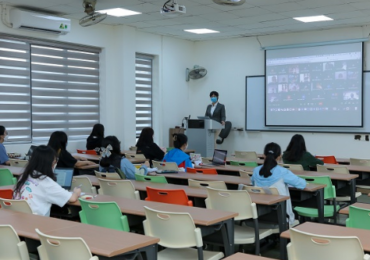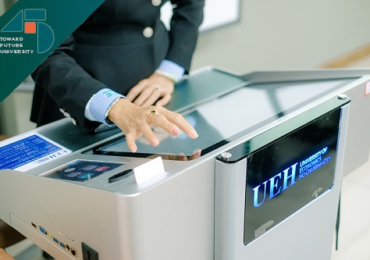The Sharing Economy: Governance Issues in Vietnam
24 January, 2022
The sharing economy model is a profound change in the way that goods and services are exchanged. Technology platforms help connect consumers with suppliers of goods and services as well as promoting better asset utilization and increasing economic resource utilization. The new economic model, certainly, threatens the interests and survival of businesses in the traditional economic model. This requires legislators and state managers to go hand-in-hand with platform businesses, owners of shared resources and users of resources to limit unexpected effects; concurrently, promoting benefits of the sharing economic model contributing to Vietnamese socio-economic development in the context of Industrial revolution 4.0.
Operation principles of the sharing economy
The sharing economy model is the activities of sharing and exchanging unused or underutilized resources through a digital platform. Digital technology helps to connect the need to share idle resources and the need to use those resources accurately, efficiently and quickly at low cost. The technology platform will process information, connecting resource providers with resource users (Hagiu & Wright, 2020).
Different from the traditional economic model with the pillars of input, production technology and products, the sharing economy model operates on the main pillars of multi-dimensional foundation, network effects and construction. trust (Øverby & Audestad, 2018).
The multi-dimensional platform allows direct interaction between two or more different user groups. The most important feature of a multi-dimensional platform is the creation of the direct interaction between groups of users. The network effect is the effect by which the number of users affects the value or utility arising from that good or service. The platform creates a network effect: the more partners are involved, the more value it creates for the entire sharing economy model. The technology platform builds trust by creating digital identity verification systems, scoring service quality to create reputation points for service providers and users.
Types of sharing economy
Common types of sharing economy include (Sundararajan, 2016): (1) Owned asset lease. The technology platform creates a market for providing services based on the available assets of the supplier; (2) Professional service provision. A technology platform that allows skilled individuals working in a traditional organization to become a separate service provider through technology to connect with potential customers; (3) Freelance worker provision. The technology platform creates a new market for freelance workers by connecting many labor providers with employers, accompanied by a system to evaluate the performance of the parties; (4) Direct peer-to-peer sales of goods. A marketplace-creating technology platform that allows sellers to sell goods directly to consumers.
The sharing economy model increases the productivity of assets, increases demand and expands consumption and promotes innovation at the individual level. The sharing economy model eliminates or reduces barriers to market entry, listed as: investment of production resources, complex distribution networks; therefore, allowing many individual individuals to start a business to enter the market from its available resources. The sharing economy also helps promote sustainable resource use (Dabbous & Tarhini, 2021).
.jpg)
The sharing economy model is increasingly contributing to Vietnamese socio-economic development in the context of the strong Industrial Revolution 4.0 (Photo source: Collection)
The practical sharing economy model in Vietnam
The sharing economy model in Vietnam has not well developed yet; nevertheless, it has a lot of potential for development (OECD, 2020). Business model of sharing economy in Vietnam, currently, is rather diverse. Of the 15 popular service areas in the world with a sharing economy model, 12 areas have appeared in Vietnam, in which the focus is towards four areas: (1) Passenger transportation with vehicle sharing. transportation like Grab, Be or Gojek, (2) Travel with accommodation services like Airbnb or Luxstay, (3) Finance with peer-to-peer lending services like Fiin.vn or Tima platforms, and (4) Lao Work with a skill-sharing service, labor force or a co-working space like bTaskee or Designcrowd.
The operation practice of the sharing economy model in Vietnam raises a number of management issues, listed as: (1) Business conditions and market competition. The market entry regulations and business conditions of the sharing economy model are stated to be lower than those in the traditional economic model, leading to accusations of unfair competition; (2) Tax administration with the sharing economy model is not effective because the legal regulations have not clearly defined the business model; (3) Protecting customers’ interests is also an issue that needs to be resolved because there is no specific management regulation; (4) Workers’ rights in the sharing economy model is an important issue that requires state intervention; and (5) Issues of users’ information security.
.jpg)
The system of sharing economy enterprises in Vietnam (Source: Compiled by the author)
Policy recommendations for the management of the sharing economy in Vietnam
First: promulgating regulations on market entry. State management agencies issue licenses that act as a prerequisite for market entry. Permits can include general, basic requirements, and local permits can add specific requirements.
Second: stipulating the contractual relationship for the sharing economic model. Stipulating the legal position with resource owners in the sharing economy model cannot be rigid and unilinear. Regulation development can consider the following factors: (1) Regulations need to be consistent with the characteristics of resources, whether physical assets or labor; (2) In order to decide which entities in the sharing economy need an employment contract, it is necessary to obtain information on the degree of economic dependence of that object on the technology-based enterprise; (3) The regulatory agency needs to determine the threshold level for economic dependence. This threshold level is the foundation for determining the signing of an employment contract; (4) Central government agencies should only set general principles. The local governing body sets out specific regulations. You can refer to Zhang (2019) about the experience of managing the sharing economy model in other countries, especially China.
Third: improving tax policy. In order to have an effective tax policy for the sharing economy model, the first key point must be to determine the business type of the sharing economy model.
Fourth: regulations to protect consumer interests and protect personal information. The state needs to amend its consumer protection law to update the impact of the new economic model. Data privacy regulation must strike a balance between enabling innovation in the sharing economy and protecting personal data.
The inevitable development trend of the sharing economy model requires open and flexible legislative thinking, creating a level playing field, encouraging innovation and competition of Vietnamese enterprises in the international market. This requires legislators and state management to accompany the platform enterprise, the owner of the shared resources as well as the user of the resources.
Please refer to the full research The Sharing Economy: Governance Issues in Vietnam here. Author: Dr. Phạm Khánh Nam (Economics Faculty – UEH School of Economics, Laws and State Management).
This writing is in Series spreading research and applied knowledge from UEH with the message for 2022 schoolyear “Research Contribution For All – Nghiên Cứu Vì Cộng Đồng”, UEH would like to invite all distinguished readers to look forwards to Newsletter ECONOMY NUMBER #27 “Blended Learning – Hybrid at University of Economics Ho Chi Minh City”.
News, photos: Dr. Phạm Khánh Nam, UEH Department of Marketing – Communication.





































